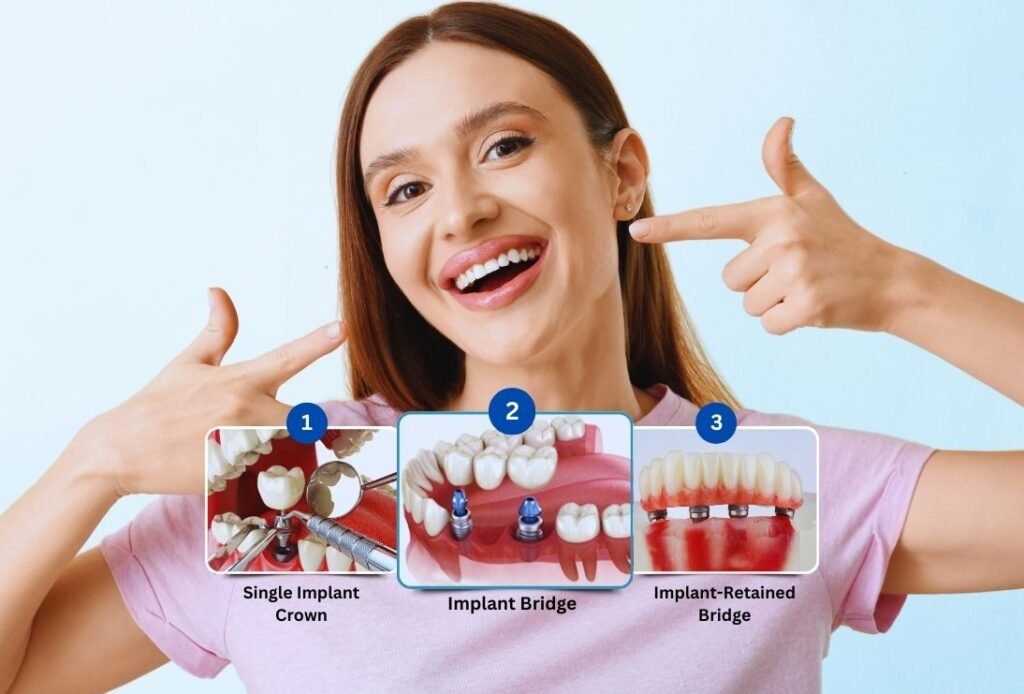Surviving cancer is a significant victory, but it often comes with long-term health impacts, including oral health challenges. Many cancer survivors experience tooth loss or jawbone deterioration due to chemotherapy, radiation therapy, or other treatments. Dental implants can restore both function and appearance—but are they safe for cancer survivors? And when is the right time to consider them?
In this article, we’ll explore when cancer survivors can safely get dental implants, the special considerations involved, and how to maximize the success of the procedure.
Why Cancer Survivors May Need Dental Implants
Cancer treatments can affect oral and dental health in several ways:
- Radiation therapy to the head and neck may damage salivary glands and jawbone.
- Chemotherapy can lead to mouth infections, dry mouth, and gum disease.
- Immunosuppressive treatments increase the risk of oral infections.
- Surgical removal of tumors may result in loss of jawbone or soft tissue.
These factors can contribute to tooth loss, poor oral health, and reduced bone volume, making dental implants a functional and aesthetic solution—but with added precautions.
Are Dental Implants Safe for Cancer Survivors?
✔ Yes, But Careful Evaluation Is Essential
Dental implants can be safe and successful for many cancer survivors. However, a personalized treatment plan is critical. Several factors must be considered:
- Type and location of cancer
- Treatments received (radiation, chemotherapy, surgery)
- Timing since last cancer treatment
- Current overall health and immune status
- Medications being used (e.g., bisphosphonates, steroids)
Safe Timing for Dental Implants After Cancer Treatment
⏳ 1. After Chemotherapy
Recommended Waiting Period: 6–12 months after completing chemotherapy
Why: Chemotherapy weakens the immune system and bone marrow. Patients need time to regain their immune strength and blood counts.
Considerations:
- Ensure white blood cell and platelet counts are within a safe range.
- Get clearance from your oncologist before any surgical procedure.
⏳ 2. After Radiation Therapy (Especially to the Head or Neck)
Recommended Waiting Period: 12–24 months post-radiation
Why: Radiation, particularly in the maxillofacial region, can reduce blood supply to the jawbone, increasing the risk of osteoradionecrosis (bone death).
Special Evaluation:
- Bone scans or CT imaging to assess bone quality.
- Consider hyperbaric oxygen therapy (HBOT) to improve healing in irradiated tissues.
Important: Implants in non-irradiated areas (like the lower jaw when radiation was targeted elsewhere) may be safer.
⏳ 3. After Bone-Targeting Cancer Treatments (e.g., Bisphosphonates, Denosumab)
Recommended Waiting Period: Varies – often at least 6 months to 1 year after stopping therapy
Why: These medications can impair bone healing and increase the risk of osteonecrosis of the jaw (ONJ) during or after oral surgery.
Precautions:
- Inform your dentist if you are taking or have taken bisphosphonates (like Zometa, Fosamax) or denosumab (Prolia, Xgeva).
- Drug holidays may be necessary but must be managed by your oncologist.
Key Considerations for Implant Success in Cancer Survivors
1. Comprehensive Medical History
Your dentist and oral surgeon should work closely with your oncologist and primary care provider to review your:
- Cancer type and treatment history
- Blood test results (CBC, bone markers)
- Imaging (X-rays, CT scans) to evaluate jawbone
2. Bone Grafting or Augmentation
If radiation or medication has weakened your jawbone, bone grafting may be necessary to build up sufficient bone volume for implant stability.
3. Adjunctive Therapies
Cancer survivors may benefit from therapies that support healing:
- PRP (Platelet-Rich Plasma): Enhances tissue regeneration
- Low-level laser therapy (LLLT): Improves wound healing
- Hyperbaric Oxygen Therapy (HBOT): Especially useful for irradiated bone
4. Nutritional and Immune Support
Healing is slower in immunocompromised individuals. Ensuring good nutrition, hydration, and immune health can support recovery.
- Eat protein-rich and antioxidant-rich foods
- Take vitamin D and calcium supplements if advised
- Avoid smoking and alcohol, which impair healing
Common Questions from Cancer Survivors
Q: Can I get implants if I had radiation to my jaw?
A: Possibly, but extra precautions are necessary. Hyperbaric oxygen therapy and bone assessment are often required.
Q: Do I need to stop my cancer medications before surgery?
A: Some medications (like bisphosphonates) may need a temporary pause, but only under your oncologist’s supervision.
Q: What if I still have mild immune suppression?
A: Minor procedures may still be possible with antibiotic coverage and careful monitoring, but major surgeries may be delayed until your immune system improves.
Conclusion: A Team-Based Approach Ensures Success
Dental implants can be a safe and life-enhancing option for cancer survivors, restoring chewing ability, confidence, and quality of life. However, success depends on timing, careful planning, and collaboration between your dental and oncology teams.
If you’re a cancer survivor considering dental implants, schedule a consultation with a qualified implant dentist who has experience working with medically complex patients. Your journey to recovery deserves the very best in care and confidence.




